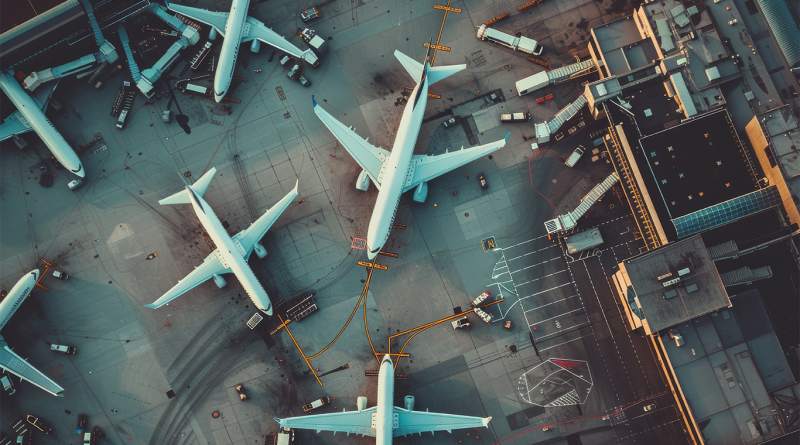Aviation Industry Braces for Extended Supply Chain Disruptions
The global aviation industry is grappling with ongoing supply chain disruptions expected to persist for years. Airlines, aircraft manufacturers, and maintenance, repair, and overhaul (MRO) providers continue to face delays, rising costs, and logistical bottlenecks that hinder operations. Flyadeal, a low-cost airline based in Saudi Arabia, is among the carriers bracing for a prolonged period of supply chain instability.
Flyadeal CEO Con Korfiatis has cautioned that the industry’s supply chain challenges will not be resolved quickly, estimating that disruptions could last another three to five years. His warning comes as airlines worldwide struggle with delayed aircraft deliveries, parts shortages, and maintenance backlogs. These issues, driven by a mix of pandemic-related aftershocks, geopolitical tensions, and increased demand for air travel, have made it difficult for airlines to maintain and expand their fleets.
Flyadeal CEO’s perspective on supply chain challenges
Korfiatis highlighted several key factors contributing to the prolonged supply chain disruptions in aviation. He pointed to labor shortages, raw material constraints, and logistical inefficiencies as primary obstacles. The aviation industry is still recovering from workforce reductions during the COVID-19 pandemic and has struggled to attract skilled labor back into manufacturing and maintenance roles.
Additionally, the demand for aircraft parts and components has surged as airlines accelerate post-pandemic recovery plans. However, production capacity remains constrained due to lingering disruptions in global manufacturing and logistics networks. Engine manufacturers, in particular, have faced difficulties meeting demand, leading to prolonged aircraft groundings and operational inefficiencies.
Korfiatis emphasized that while airlines and suppliers are working to address these issues, the complexity of the aviation supply chain means that full recovery will take time. He noted that airlines must prepare for continued disruptions and adopt flexible strategies to mitigate risks.
Impact on aircraft production and delivery
The ripple effects of supply chain disruptions are being felt acutely in aircraft production and delivery schedules. Major manufacturers like Boeing and Airbus have faced delays in sourcing critical components such as engines, avionics, and composite materials, slowing down assembly lines and pushing back delivery timelines. Airlines that had planned fleet expansions or replacements are now dealing with significant setbacks, impacting their ability to meet growing passenger demand.
Flyadeal, like many other airlines, has faced delays in receiving new aircraft, complicating its fleet growth strategies. These delays not only affect route planning and capacity but also have financial implications, as airlines often rely on new, fuel-efficient aircraft to reduce operating costs and meet sustainability targets. Older aircraft, which consume more fuel and require more maintenance, remain in service longer than anticipated, further straining operational budgets.
Additionally, leasing companies, which play a crucial role in providing aircraft to airlines on flexible terms, are experiencing similar challenges. With fewer new aircraft becoming available, lease rates are rising, and airlines face limited options for quickly expanding their fleets.
Maintenance, repair, and overhaul sector implications
The MRO sector has not been immune to these supply chain challenges. Maintenance providers are struggling with delays in the availability of spare parts, extending turnaround times for scheduled maintenance and unexpected repairs. Aircraft that would typically return to service quickly after routine checks are now grounded for longer periods, reducing fleet availability and increasing operational costs for airlines.
Korfiatis pointed out that the engine supply chain is one of the most severely affected areas. With engine manufacturers facing their own production challenges, airlines are finding it increasingly difficult to secure replacement parts and components necessary for overhauls. This situation is particularly critical for low-cost carriers like Flyadeal, where high aircraft utilization rates are essential to maintaining profitability.
The MRO sector is also facing labor shortages, compounding the problem. Skilled technicians and engineers, many of whom left the industry during the pandemic, have been slow to return, leaving maintenance providers with insufficient staff to meet rising demand. This shortage is especially problematic in regions like the Middle East, where aviation growth is outpacing the global average, putting additional strain on an already stressed supply chain.
In response, MRO providers are seeking ways to streamline operations and improve efficiency, such as investing in predictive maintenance technologies and exploring partnerships with original equipment manufacturers to secure a more reliable supply of parts. However, these solutions will take time to implement, and the industry is likely to face continued challenges in the near term.
With supply chain disruptions showing no signs of immediate resolution, airlines and MRO providers are adopting proactive strategies to mitigate the impact. Flyadeal, for instance, is exploring partnerships beyond traditional suppliers to ensure a steady flow of parts and materials. Additionally, airlines are increasingly entering into long-term agreements with suppliers to secure priority access to essential components, locking in prices and delivery schedules to reduce uncertainty.
The aviation industry faces a prolonged period of supply chain disruptions, with challenges expected to persist for at least the next three to five years. Insights from Flyadeal CEO Con Korfiatis highlight the complexity and scale of the issues at hand, from labor shortages and raw material constraints to delays in aircraft production and maintenance.
Sources:
To keep up-to-date with our latest supply chain news, subscribe to our newsletter today.
